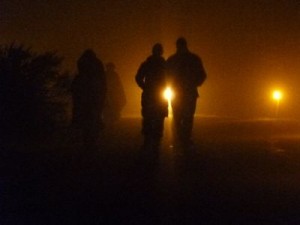Subtle Energy, Trauma & Transformation Part 7: Managing the Energy of Change

 This post suggests compassionate responses and actions we can take to stay balanced during times of major change:
This post suggests compassionate responses and actions we can take to stay balanced during times of major change:
Don’t take the ambient energy personally. Ambient energy comes from the physics that CAUSE earth changes AND from the collective response. By ambient energy I mean the energy currently circulating around in the collective. You know—the energy-aftermath from the feelings the news stirs up.
Less obvious and even more important is the energy OF the ACTUAL events the news is ABOUT. Energy generated by people in distress ricochets around the earth like a rock in a pond or an earthquake causing a tsunami and moving continents.
Do explore what is going on with you personally and the issues that arise inside, and address them. Take care not to add anything to them. The intensity that fuels your reactions may have little to do with you. (See Post #3 in series.)
Learn to take internal trauma with a grain of salt—even while you validate and honor its origins. Neutral observation brings balance. (See Inner Work series.)
Seek to participate in fully in transformation during times of trauma. Whether or not the PURPOSE of trauma is transformation, positive participation alleviates stress by conferring a measure of, if not actual control, constructive direction.
Take a longer-range view. Look beyond the last few days and weeks to note with compassion that we’re in the middle of a very long grind. We habituate to this stress mentally, and take it for granted. Our emotional and physical energies adjust more slowly, while fast-moving effects build over time.
Accept your discomfort. Grasping for joy and trying to push away discomfort digs us in deeper. It sets up a series of reactions that make authentic joy harder to access. Be with What IS as you take actions that nurture greater comfort.
Extend compassion to the parts of yourself that feel traumatized by the level of change occurring.
Surrender to the fact that change is inevitable, and seek to surf with it. Resistance drains you and keeps you stuck. Find ways to create benefit, even through loss.
Ask for divine assistance–not to GET something but to BECOME all you can be.
Do your Inner Work (Link).
Use the energy of change to transform yourself and your life by considering positive outcomes. Use any disruption you feel and your concerns about the future to motivate constructive action, personally and in service. Make a concerted effort to recreate your life while things are in a state of flux anyway.
outcomes. Use any disruption you feel and your concerns about the future to motivate constructive action, personally and in service. Make a concerted effort to recreate your life while things are in a state of flux anyway.
- How would you like to emerge?
- What do you need to release or tear down to make way for a better situation?
- What can you free yourself from or give away?
- What do you need to be independent of to be happy?
Contemplate the freedoms that come with loss. Also contemplate the types of freedom inherent within commitment, the things you can express and accomplish.
Deal with any lingering dissatisfaction and your fears of going away from familiar structures and situations.
Make moment-to-moment choices that are consistent with you where you want to go.
Take responsibility–by staying as present as possible to your authentic experience.
 Find practical ways to reduce overwhelm:
Find practical ways to reduce overwhelm:
- put self-care at the top of your list
- set clear priorities
- revamp boundaries to fit current circumstances
- take time to relax
- spend time in nature
- exercise
- notice if listening to the news becomes too much
- take care of your spirit
Avoid random action rooted in restlessness.
Make changes based on true preference. Changes made to avoid discomfort can land you in another form of discomfort somewhere else. Impatience without a solid direction is just undirected energy.
Give energy a positive direction. If you do not have a clear sense of direction, focus on building clarity and developing lucid intention.
How do YOU manage the energy of change?
Which aspects of you adjust quickly and which ones get stuck?
What do you do when external energies become intense?





























